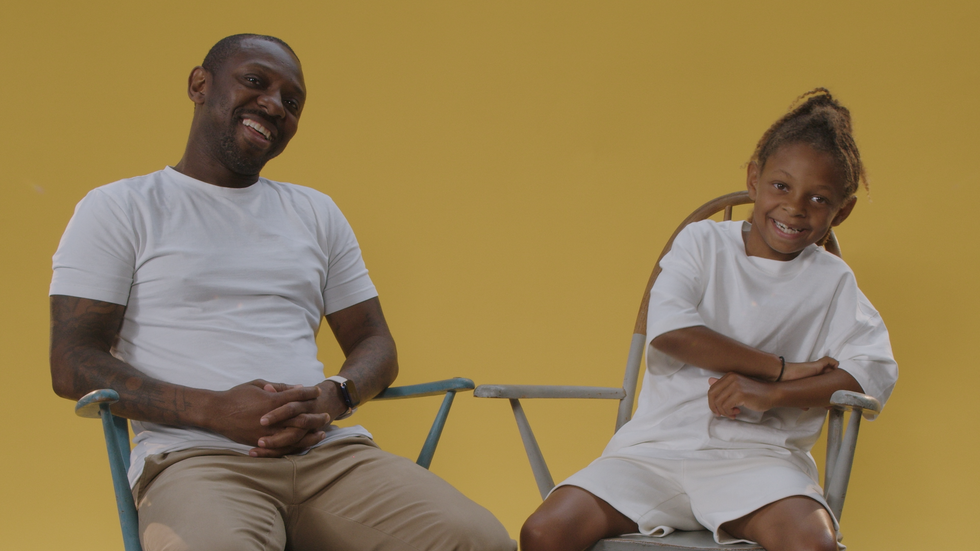Two-fifths (38 per cent) of kids aged 6-15 will copy the behaviour of adults, online and offline, if they see it is positively reinforced, even if they think it’s wrong, a recent YouGov survey commissioned by EE has revealed today.
The research highlights the true exposure to hate that kids suffer with today across the online and offline spectrum with over a third (37 per cent) of kids reporting experiencing hate in their childhood to date.
When it comes to what causes the hate, a fifth (22 per cent) of children say it's because of their gender both online and offline, while 17 per cent experience hate because of skin colour or where their family comes from. Youngsters also report experiencing hate related to their faith, beliefs or ways of worshipping (15 per cent) and disability (13 per cent).
In addition, a new study by EE, also in partnership with YouGov revealed that three-fifths (61 per cent) of GB adults have personally experienced hate either in person or online in the last year, with racism (45 per cent) and sexism (38 per cent) being the most prevalent forms of hate witnessed.
Concerningly, it means these worrying results are having an impact on impressable children since 1 in 10 (13 per cent) kids now think it’s acceptable to use words that are mean or hurtful when it is related to sport and 11 per cent think it’s okay to be able to use words that are mean or hurtful online because it isn’t real life.
This is having a consequential impact not just on children's behaviour but also on their feelings too.
More than two-fifths (43 per cent) of kids report feeling angry or sad when they see family or friends be abusive to other people. A similar number (44 per cent) of kids also report feeling sad or angry when they see hate aimed at their favourite sportspeople.
The poignant findings are accompanied by an emotive film which captures children’s real thoughts and reactions to hateful behaviour.
One of the children to feature in the campaign is Raphaella Wright-Phillips, daughter of former England international, Shaun Wright-Phillips, who herself has been the target of verbal abuse on the football field.
Shaun and Raphaella front this campaign to reinforce the role that adults play in shaping the next generation while highlighting how abuse can affect many more people than simply its intended target.
As the UK public heads into a significant summer of sport, hate and its effects will likely be exacerbated. So, it’s more important than ever that people take accountability for their actions and the impact they can have on those around them.
Currently, a fifth (21 per cent) of adults admit to rarely or never considering the implications of their behaviour. Society must behave better to protect and shape the next generation. EE, via the Proud Supporter Programme, an online hub designed to empower the nation to celebrate and support true fandom this summer, is on hand to help society on this journey and make it more inclusive for all.
The research and content form part of EE’s “Hate. Not In My Shirt”, a campaign that calls on fans to be ‘proud supporters’ and to stand together and challenge hate in football. The campaign – which is being unveiled in installments over the coming weeks - celebrates the moments in the sport that make people proud to wear the shirt, whilst highlighting the behaviour not fit for it.
The research reinforces the importance of positive fandom as four-fifths (82 per cent) of children in the UK report feeling happy when exposed to acts of positivity, both online and offline.

Former England international, Shaun Wright-Phillips, said: “Football isn’t just about supporting our team; it's about ensuring the next generation can grow up to be proper football fans, free from the toxic behavior that spoils the sport we love. This is why campaigns like this one are so important: ensuring everyone can enjoy football and, just as importantly, making sure that children are spared hateful and abusive behaviour."
Raphaella Wright-Phillips, said: "It's really important to stop hate, online and in real life so that kids like me can enjoy football and feel safe. We should all be kind and support each other because that's what being a football fan is all about."
Marc Allera, CEO of EE, said: “It has been great to work with so many passionate, articulate young people who have helped lay bare the issue of hate. This is exactly the reason why EE continues to be at the forefront of the battle against online and offline abuse: as our campaign” Hate. Not in my Shirt” continues throughout the summer, we remain committed to ensuring everyone can live a life free from hate, in football and beyond.”
The “Hate. Not In My Shirt” campaign is part of EE’s ongoing and longstanding commitment to combat hate through support for change and educating the nation on how to protect themselves online, be good digital citizens and role models for the next generation. This has come to life over the last four years through Hope United and the establishment of the EE LearnSmart platform to help make the online world safer for young people.
For more information on how to become an #EEProudSupporter, and to learn how to stand with fans and tackle hate in football, visit ee.co.uk/learn.
Watch EE’s campaign film with Shaun Wright-Philipps and his daughter Raphaella Wright-Phillips, here.
How to join the indy100's free WhatsApp channel
Sign up to our free indy100 weekly newsletter
Have your say in our news democracy. Click the upvote icon at the top of the page to help raise this article through the indy100 rankings.














